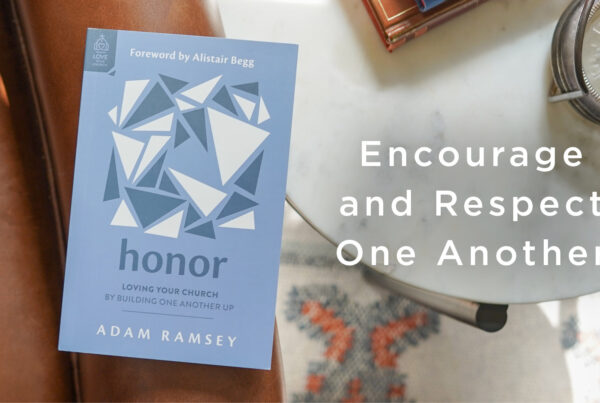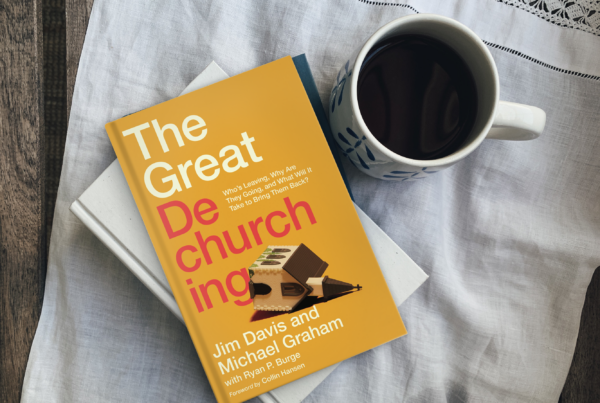Theological Foundations
Oneness Embraced begins by building a biblical foundation for understanding ethnicity and conflict, recounts the history of the black church, and casts a vision for unity that is possible through Christ and in His Kingdom.
We are living in historic times. Not since the civil rights movement of the ’60s has our country been this vigorously engaged in the reconciliation conversation. There is a great opportunity right now for culture to change–for us to become a more perfect union. However, it cannot be done without the church, because the faith of the people is more powerful than any law government can enact.
Dr. Eric Mason gives a call to action and gives a practical look at what the church can do in four parts: “Be Aware,” “Be Willing to Acknowledge,” “Be Accountable,” “Be Active.”
The Color of Compromise by Jemar Tisby is a powerful starting point that calls the church to reflect the beauty of the Christ-centered unity of the New Testament, with a clear-eyed look at the history of how the church has contributed to division in our history.
If you are a pastor trying to mobilize your church, or a Christian trying to live with purpose, this theology of missions from pastor Doug Logan will help. It will inspire you to do what matters, take steps of faith, and watch God work.
What keeps us so divided in the blood-bought Church of Jesus Christ? Emerson and Smith researched just that. This book has become the standard for understanding the racial divides in the American church.
Free at Last?: The Gospel in the African American Experience
Has Dr. King’s dream been realized? Carl Ellis offers an in-depth assessment of the state of African American freedom and dignity within American culture today.
Mary Beth Swetnam Mathews wrote a history of doctrinal and racial divides that illuminates the multifaceted reality of the development of the black church. This is compelling and illuminating, a tough but needed perspective.
United: Captured by God’s Vision for Diversity
We all could benefit by Trillia Newbell’s joy and passion. This is a great look at God’s heart for ALL people.
Dr. John Perkins is a civil rights leader. This one is an inspiring call to look to the vision of unity and reconciliation, to dream of a future reality that can feel all too distant.
Dr. Jarvis Williams helps reset our categories from being overtly culturally shaped to thinking more biblically. All people, the human race from every ethnicity, are distinguished biblically as “in Adam” or “in Christ.”
An introduction to African American preaching by Thabiti Anyabwile. This book is as educational as it is devotional and introduces the ministries of Lemuel Haynes, Daniel A. Payne, and Francis J. Grimke.
Francis Grimke was the son of a slave and a slave owner. He graduated from Princeton Seminary and pastored 15th St Presbyterian Church right in the heart of Washington, D.C. His brilliant reflections and writing continue to have an impact.
Plain Theology for Plain People
Charles Octavius Boothe was a church planter who started Dexter Avenue Baptist in Montgomery–later Martin Luther King, Jr.’s church. This is a go-to resource for simple, clear theological truth.
Many white Christians are waking up to the fact that something is wrong, but that’s where they get stuck. David Swanson makes the case that discipleship, not merely diversity, is the core problem that must be addressed.
History & Culture
Dr. Martin Luther King, Jr.’s Letter From a Birmingham Jail is a must-read. This edition includes reflections from other pastors in our theological stream. “I hope the church as a whole will meet the challenge of this decisive hour. But even if the church does not come to the aid of justice, I have no despair about the future… the eternal will of God is embodied in our echoing demands.”
Martin Luther King, Jr. and the Image of God
The civil rights movement was a theologically driven movement. A helpful look at how Dr. King’s theology led him to the pursuit of justice.
How Africa Shaped the Christian Mind
Historical Christian belief was shaped by African Christians. From doctrine, to exegesis of the text, to universities…Christianity has deep roots in Africa.
W.E.B. DuBois was the first African American to achieve a doctorate at Harvard. His seminal work in sociology exposes the painful duality that so many experience, and the systems that have shaped the realities we still see now.
The Mis-Education of the Negro
“If you can control a man’s thinking you do not have to worry about his action. When you determine what a man shall think you do not have to concern yourself about what he will do.” Carter Woodson’s classic gives insight into how thinking has been shaped over generations.
Rev. Peter Randolph’s autobiographical works give powerful portraits of slave religion. He was freed and relocated from Virginia to Boston, where he was a pastor and abolitionist.
Narrative of the Life of Frederick Douglass
Frederick Douglas is a brilliant communicator with a pointed and prophetic voice. His powerful experience exposes our shared history.
In his powerful book, Miroslav Volf is brilliant at exposing the condition and propensity within each of us to “otherize” people. Because this is not based on research in the American context, reading it can help to cast deeper human issues, that are reflected in our history, while cutting through language that may have baggage for individual readers.
Current Issues
The Whitewashing of Christianity
Forthcoming in October 2020 from Jerome Gay, Jr.
Gentrification is a complicated issue that gets too quickly polarized and politicized. This book is a helpful look at the consequences of displacement.
“Mass incarceration is, metaphorically, the New Jim Crow;” and “…all those who care about social justice should fully commit themselves to dismantling this new racial caste system.”
Place matters. Systemic issues are real. Dr. William Julius Wilson’s research is helpful in showing the devastating impact of inequality for all people.
With Justice for All: A Strategy for Community Development
A challenge from Dr. John Perkins that, “Either justice will come through us [the church], or it will not come at all.”
Through his articulate analysis and engrossing recollections of the last half-century of American race relations, Steele calls for a new culture of personal responsibility, a commitment to principles that can fill the moral void created by white guilt.
“It is impossible to do theology devoid of cultural lenses and expressions. Like an American unaware of their own accent, most whites are unaware of the ethnic theological accent they carry.” Insider Outsider bears witness to the true stories that often go untold–stories that will startle, enlighten, and herald a brighter way forward for all seeking belonging in the family of God.










